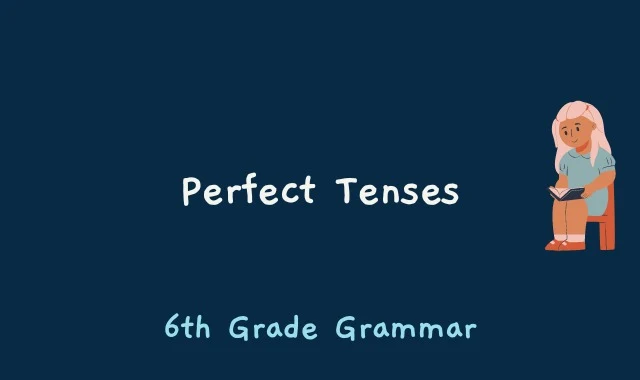1. What are perfect tenses and examples?
Answer: Perfect tenses are verb tenses used to indicate actions that are completed at the time of speaking or at some specific point in the past, present, or future. There are three main types of perfect tenses: present perfect, past perfect, and future perfect.
- Present Perfect: Indicates an action that happened at an unspecified time before now.
- Example: She has finished her homework.
- Past Perfect: Indicates an action that was completed before another action in the past.
- Example: He had left before the party started.
- Future Perfect: Indicates an action that will be completed before a specific time in the future.
- Example: By next week, they will have completed the project.
2. What are the four types of the perfect tense?
Answer: The four types of the perfect tense include:
- Present Perfect Simple: Used for actions that happened at an unspecified time or started in the past and continue to the present.
- Example: They have visited Paris.
- Present Perfect Continuous: Emphasizes the duration of an action that started in the past and continues into the present.
- Example: She has been studying for three hours.
- Past Perfect Simple: Describes an action that was completed before another past action.
- Example: By the time we arrived, they had left.
- Past Perfect Continuous: Focuses on the duration of an action that was ongoing in the past before another past action.
- Example: He had been working at the company for five years before he resigned.
3. What are perfect tenses in writing?
Answer: Perfect tenses in writing are used to indicate the timing of actions and to show the relationship between different actions in time. They help to convey a sequence of events and to emphasize the completion or continuation of actions. Perfect tenses add clarity and detail to writing by specifying when actions occur relative to one another.
- Present Perfect: Used for actions that have relevance to the present.
- Example: She has written three books (and they are still available today).
- Past Perfect: Used to describe an action that was completed before another action in the past.
- Example: They had finished the report before the meeting.
- Future Perfect: Used to describe an action that will be completed before a specific future time.
- Example: By 2025, I will have graduated from university.
4. What are 10 examples of the past perfect tense?
Answer:
1. She had already left when I arrived.
2. By the time the movie started, they had already seen it.
3. He had finished his work before the deadline.
4. They had lived in that house for ten years before moving out.
5. I had never been to New York until last summer.
6. We had eaten dinner before they came over.
7. The teacher had already started the lesson when I walked in.
8. He had forgotten his keys before leaving the house.
9. By the time the train arrived, I had waited for two hours.
10. She had completed her homework before watching TV.

